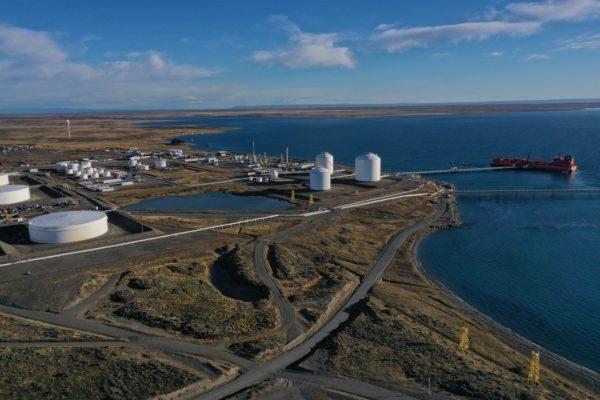In Short : The zero-carbon shipping center will serve as a hub for promoting and advancing technologies that reduce carbon emissions in the shipping sector. This initiative demonstrates a commitment to finding innovative solutions to address climate change and promote sustainable practices in one of the most important transportation industries.
In Detail : The Mærsk Mc-Kinney Møller Center for Zero Carbon Shipping is strengthening its collaboration with the Chilean government.
As previously reported, in April 2022, Chile’s Ministry of Energy and the Copenhagen-based zero-carbon shipping centre agreed to partner on the creation of a network of green corridors to transport goods in and out of the South American country. An MoU was signed between the parties in June to further expand their collaboration.
In a social media post, the Mærsk Mc-Kinney Møller Center for Zero Carbon Shipping said that a Green Corridors Delegation centre visited Chile last month where it explored first-mover renewable energy projects and signed a new Memorandum of Understanding (MoU) with Diego Pardow, the Minister of Energy of the Ministerio de Energía Chile.
According to the zero-carbon shipping centre, the expanded collaboration with the Chilean Government sets a course on exploring new Green Corridors opportunities in Chile’s southernmost region, Magallanes, ‘where the average wind speed, is remarkably high, making it an ideal strategic location for the supply of clean, zero-emissions maritime fuels.’
The effort adds to its existing focus and collaborative initiatives in the Antofagasta Region in the northern part of Chile, ‘which has massive solar energy potential’, the zero-carbon shipping centre added.
Commenting on the MoU signing, Bo Cerup-Simonsen, CEO of Mærsk Mc-Kinney Møller Center for Zero Carbon Shipping, stressed the urgency of turning decarbonisation commitments into action.
‘We are delighted and honoured to collaborate closely with the Ministerio de Energía Chile, authorities, and companies to establish Green Shipping Corridors: all the way from green fuel production, updating of ports, shipping powered by green fuels for dedicated cargo owners to enable green supply chains,’ said Cerup-Simonsen. ‘Chile is showing leadership and has huge opportunities to lead the scale-up of the transition with enormous renewable energy resources.’

